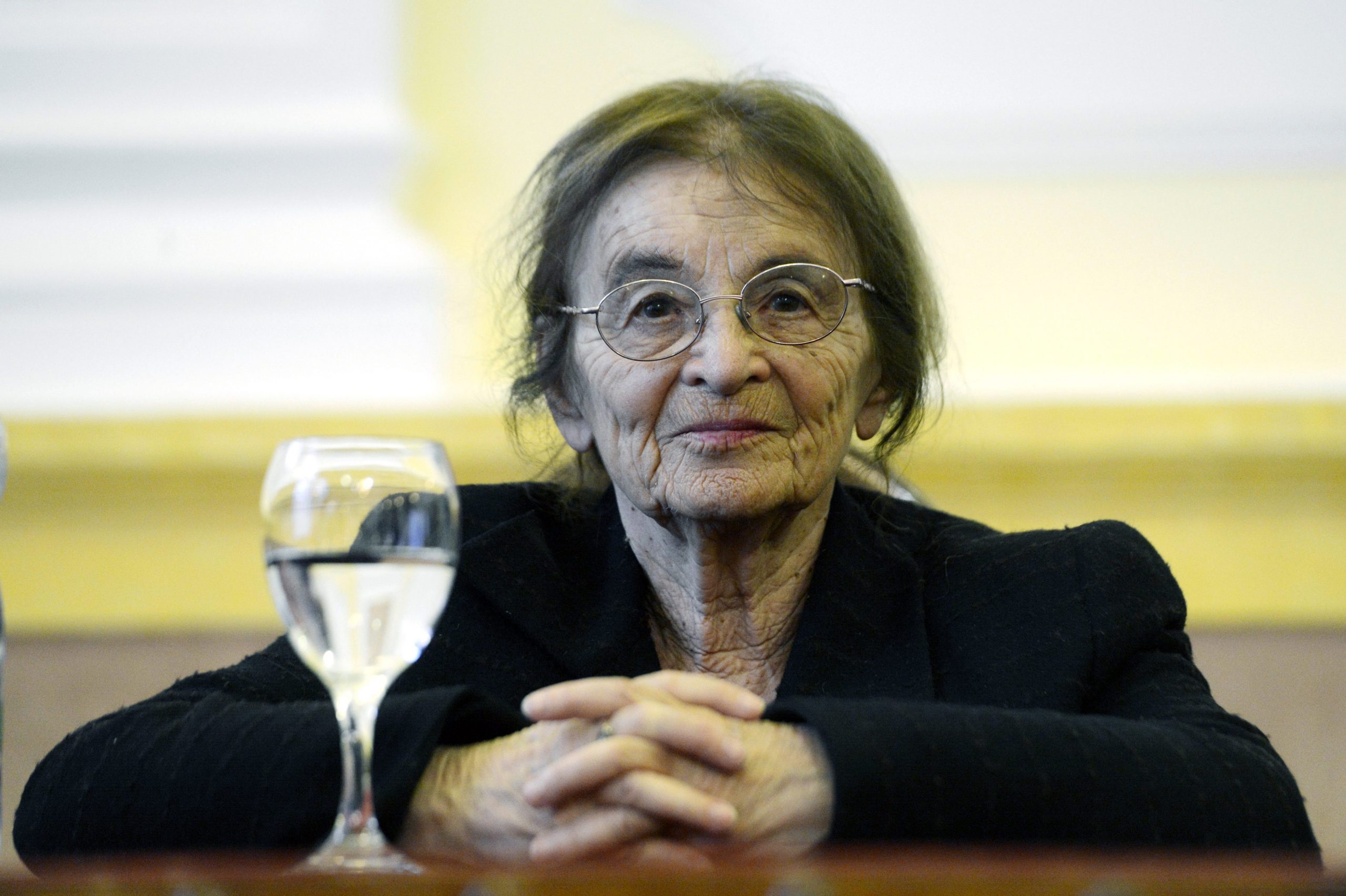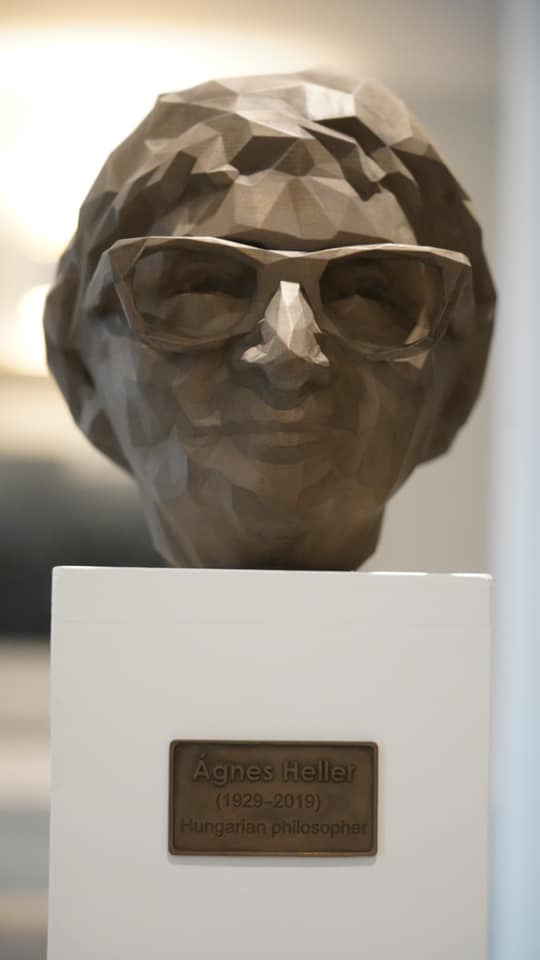
The portrait bust of Széchenyi National Prize-winning philosopher, Ágnes Heller, has been inaugurated in the European Parliament. The world-known Hungarian aesthete and university professor died two years ago.
The portrait bust was donated by left-liberal opposition party Democratic Coalition’s (DK) Foundation for a New Republic. It was EP president Davide Sassoli himself who received it upon its arrival and participated at the inauguration too.
“I can’t think of a more fitting place for a bust of Ágnes Heller than in the European Parliament here in the heart of Europe,” DK MEP Klára Dobrev commented, also explaining that “her European values and humanism, her unconditional faith in humanity, and her commitment to democracy are essential for Democratic Coalition.”

Image by Klára Dobrev- Facebook
24.hu notes that the portrait bust is actually Péter Szalay’s work, who had previously prepared the rainbow-colored Black Lives Matter statue placed in Budapest’s IX district, which was eventually vandalized by far-right activists.
She is not the first Hungarian figure to have a bust in the EP. Socialist (MSZP) Prime Minister Gyula Horn’s was inaugurated in 2015. In addition, a whole building was named after Hungary’s first PM after the regime change, József Antall (of conservative MDF).
Born in 1929, Heller was raised in a middle-class Jewish family. During the Holocaust she managed to escape deportation. She graduated from Budapest’s Eötvös Lóránd University in 1951. From 1947 to 1949 and from 1953 to 1958, she was a member of the Communist Party but was expelled both times. Due to her involvement in the 1956 revolution, she was dismissed from the university.
As a student of Marxist philosopher György Lukács, Heller was a core member of the Budapest School philosophical forum that sought to promote Marxist criticism in the 1960s. After the invasion of Czechoslovakia by Warsaw Treaty forces in 1968, she signed the “Korcula Letter” condemning the invasion.
After Lukács’s death in 1971, she was subjected to official surveillance and general harassment in Hungary. In 1973 the Communist Party’s Political Committee declared her philosophical views anti-Marxist and dismissed her from her job. Rather than remain as dissidents, Heller and her husband, philosopher Ferenc Fehér, chose to go into exile in Australia in 1977.
Heller returned to Hungary in 1989 to become a university lecturer in Budapest and Szeged. In the meantime, she served as a visiting professor in New York. She has written over 40 ethics, philosophy, and political theory books. She received the Hannah Arendt Prize in 1996, the Sonning Prize in 2006, and the Goethe Medal in 2010. She was a member of the Hungarian Science Academy (MTA) and Professor Emerita of The New School for Social Research of New York.

Image by Klára Dobrev- Facebook
Due to her involvement in Hungarian politics, in which she represented a stance many found radically liberal and international, her reputation in Hungary mostly depends on party-affiliations.
She died in July, 2019, at the age of 90.
featured image via Tamás Kovács/MTI